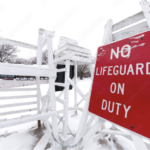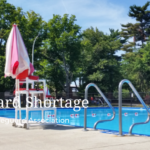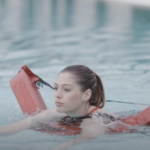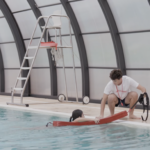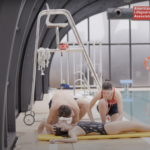Lifeguarding is a critical profession that involves ensuring the safety of individuals in and around water bodies such as swimming pools, lakes, and beaches. With the growing number of people who enjoy aquatic activities, the need for well-trained and skilled lifeguards is more important than ever.
If you are considering becoming a lifeguard in Georgia, it is important to understand the benefits of lifeguard training and the requirements to obtain a lifeguard certification.
Benefits of Lifeguard training
Ensures the safety of individuals in and around water bodies
Lifeguards are trained to identify potential hazards and prevent accidents from occurring in and around water bodies. By completing lifeguard course, you will be equipped with the necessary skills and knowledge to prevent drowning and other water-related accidents.
Improves your physical fitness
Lifeguarding is a physically demanding profession that requires endurance, strength, and stamina. Through lifeguard training, you will improve your physical fitness, which will not only benefit you in your profession but also in your daily life.
Develops your leadership and communication skills
Lifeguards are responsible for the safety of individuals in and around water bodies. To effectively carry out this responsibility, you need to be able to communicate effectively with others and lead by example. This training will help you develop these essential skills.
Provides opportunities for career advancement
Lifeguarding is not just a seasonal job; it can also be a career. With a lifeguard certification, you can explore career opportunities in aquatics management, aquatic therapy, and aquatic safety education.
Requirements to Obtain a Lifeguard certification in Georgia
To become a certified lifeguard in Georgia, you must meet the following requirements:
Age Requirement: You must be at least 15 years old to enroll in lifeguard training.
Swimming Requirement: You must be able to swim 300 yards continuously using a combination of breaststroke and freestyle strokes.
Treading Water Requirement: This requirement needs you to be able to tread water for 2 minutes using only your legs.
Retrieval Requirement: You must be able to retrieve a 10-pound object from a depth of 7-10 feet and swim it back to the starting point within 1 minute and 40 seconds.
Lifeguard training Course: You must complete a lifeguard course that includes both classroom and practical training.
CPR/AED and First Aid Certification: You must have a current CPR/AED and First Aid certification.
Additional Benefits of Lifeguard training
Increases your confidence in water
Lifeguard classes include practical sessions where you will learn and practice different techniques for rescuing swimmers in distress. These sessions will increase your confidence and comfort level in water, which can translate to a more enjoyable experience when participating in aquatic activities.
Provides essential skills for emergency situations
In addition to the essential skills required to prevent and manage water-related accidents, lifeguard training will also provide you with skills that can be applied in emergency situations outside of water, such as performing CPR and administering first aid.
Builds teamwork and collaboration skills
Lifeguarding is a team effort. Through training, you will learn to work effectively with other lifeguards, pool managers, and emergency responders to ensure the safety of individuals in and around water bodies. These skills are transferable to other areas of your personal and professional life, where teamwork and collaboration are essential.
Requirements for Lifeguarding Employers in Georgia
Lifeguarding employers in Georgia are required to meet certain requirements to ensure the safety of individuals in and around water bodies. These requirements include:
Properly trained and certified lifeguards
Lifeguarding employers must ensure that their lifeguards are properly trained and certified. This includes ensuring that lifeguards have completed a lifeguard course, possess a current CPR/AED and First Aid certification, and meet the swimming and other requirements.
Adequate safety equipment and facilities
Lifeguarding employers must provide adequate safety equipment, such as rescue tubes and reaching poles, and ensure that facilities such as pools and beaches are properly maintained and equipped with safety features such as safety lines and warning signs.
Proper supervision and staffing
Lifeguarding employers must ensure that their facilities are properly supervised and staffed with an adequate number of lifeguards based on the size and complexity of the facility. Employers must also ensure that their lifeguards receive ongoing training and support.
How to Obtain Lifeguard certification in Georgia
To become a certified lifeguard, individuals must complete a lifeguard course that meets the state’s requirements. The course typically lasts between 20 to 30 hours and includes both classroom instruction and practical training. The American Lifeguard Association offers comprehensive lifeguard training courses that meet Georgia’s requirements and prepare individuals for the duties and responsibilities of a lifeguard.
Once the course is completed, individuals must pass a written and practical exam to receive their certification. The certification is valid for two years and must be renewed before it expires.
Career Opportunities for Certified Lifeguards
Becoming a certified lifeguard in Georgia can lead to various career opportunities in the aquatic industry. Certified lifeguards can work at water parks, beaches, community pools, and other aquatic facilities. Additionally, certified lifeguards can advance their careers by becoming swim instructors, pool managers, or aquatic program directors.
These positions require additional training and certification, but they offer increased responsibility and higher pay. Obtaining a lifeguard certification is also an excellent way for students to earn extra income during the summer months or while attending college. It can also provide a sense of accomplishment and satisfaction knowing that you are contributing to the safety and well-being of others in your community.
Conclusion
In conclusion, lifeguarding is a critical profession that requires specialized training and certification. Through lifeguard training, you will not only develop essential skills to ensure the safety of individuals in and around water bodies but also improve your physical fitness and communication, and leadership skills. To become a certified lifeguard in Georgia, you must meet the age, swimming, treading water, retrieval, lifeguard course, and CPR/AED and First Aid certification requirements.
To ensure you receive quality lifeguard training in Georgia, consider obtaining your certification through the American Lifeguard Association. Their program offers comprehensive training, certification, and job placement opportunities for lifeguards in Georgia and across the United States.


